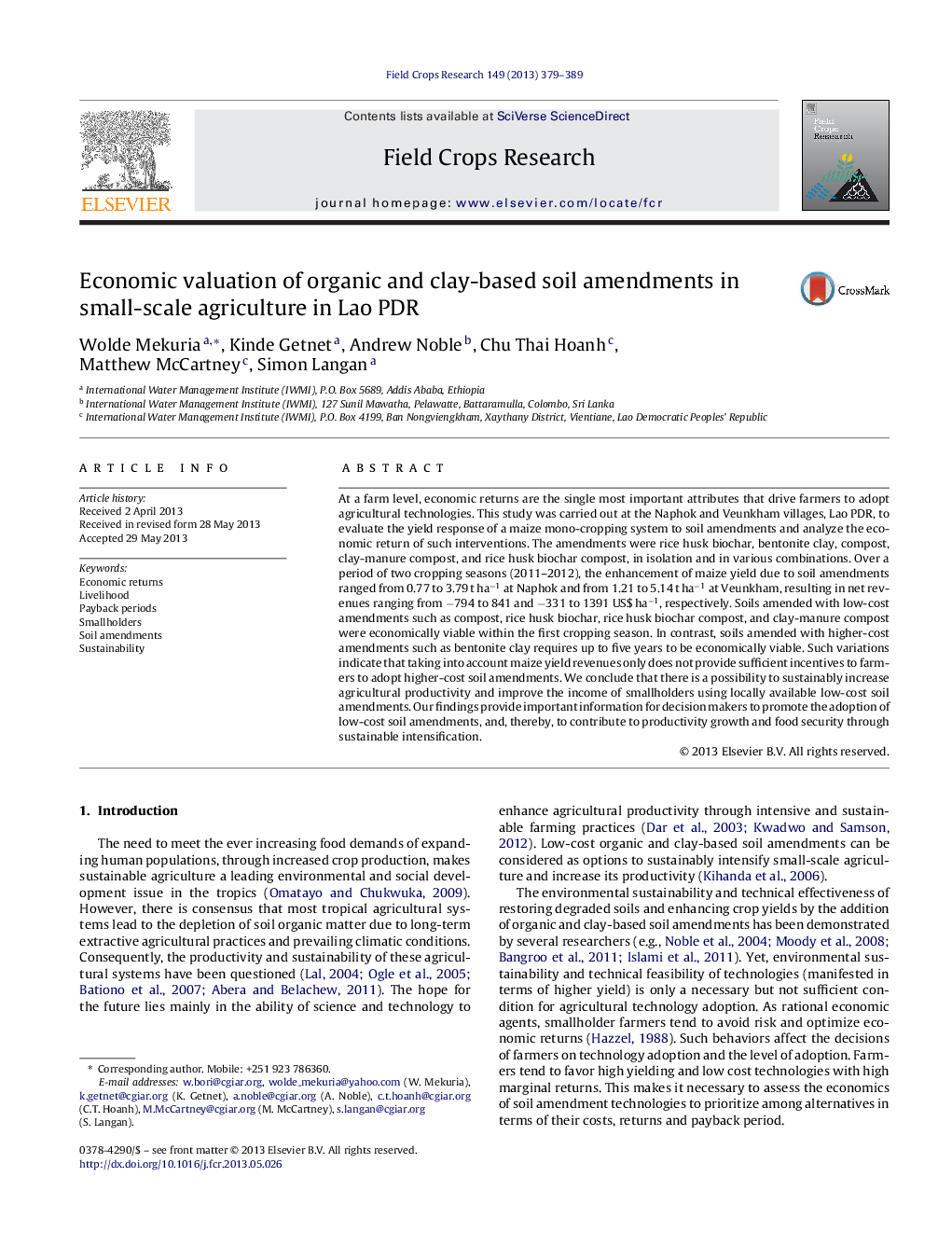| Article ID | Journal | Published Year | Pages | File Type |
|---|---|---|---|---|
| 6375308 | Field Crops Research | 2013 | 11 Pages |
â¢Organic and clay-based soil amendments significantly improve maize yield.â¢Low-cost soil amendments were economically viable within the first cropping season.â¢The payback period lasts up to five years in soils with higher-cost amendments.â¢Maize yield revenues do not provide sufficient incentives to farmers to adopt higher-cost amendments.â¢Up scaling low-cost amendments could contribute to food security through sustainable intensification.
At a farm level, economic returns are the single most important attributes that drive farmers to adopt agricultural technologies. This study was carried out at the Naphok and Veunkham villages, Lao PDR, to evaluate the yield response of a maize mono-cropping system to soil amendments and analyze the economic return of such interventions. The amendments were rice husk biochar, bentonite clay, compost, clay-manure compost, and rice husk biochar compost, in isolation and in various combinations. Over a period of two cropping seasons (2011-2012), the enhancement of maize yield due to soil amendments ranged from 0.77 to 3.79 t haâ1 at Naphok and from 1.21 to 5.14 t haâ1 at Veunkham, resulting in net revenues ranging from â794 to 841 and â331 to 1391 US$ haâ1, respectively. Soils amended with low-cost amendments such as compost, rice husk biochar, rice husk biochar compost, and clay-manure compost were economically viable within the first cropping season. In contrast, soils amended with higher-cost amendments such as bentonite clay requires up to five years to be economically viable. Such variations indicate that taking into account maize yield revenues only does not provide sufficient incentives to farmers to adopt higher-cost soil amendments. We conclude that there is a possibility to sustainably increase agricultural productivity and improve the income of smallholders using locally available low-cost soil amendments. Our findings provide important information for decision makers to promote the adoption of low-cost soil amendments, and, thereby, to contribute to productivity growth and food security through sustainable intensification.
